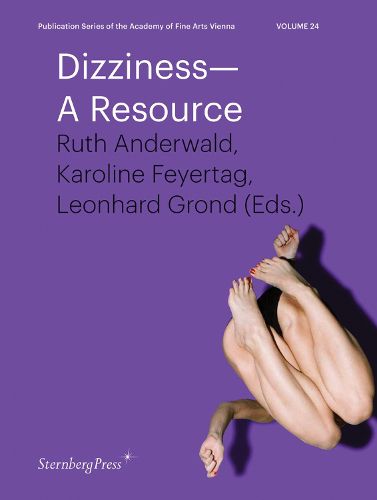Readings Newsletter
Become a Readings Member to make your shopping experience even easier.
Sign in or sign up for free!
You’re not far away from qualifying for FREE standard shipping within Australia
You’ve qualified for FREE standard shipping within Australia
The cart is loading…






Dizziness is more than feeling dizzy. In this multidisciplinary reader, artists, philosophers, and researchers from a range of experimental sciences and cultural studies trace dizziness not only as a phenomenon of sensory input impacting our vestibular system, but also as a twofold phenomenon of sense -creating meaning and triggering emotions. It is an interdependence of sense and sensing, of cultural constructs and sensuality, of somatic and cognitive knowledge, that can only be conceived of as a complex relation of both formation and dissolution, habituations and transformations, pertaining to our shared reality and our individual experiences. This is further reflected in the programmatic claim that states of dizziness can be seen as a resource.co-published with Academy of Fine Arts Vienna Contributors Ruth Anderwald, Mathias Benedek, Oliver A. I. Botar, Katrin Bucher Trantow, Davide Deriu, Karoline Feyertag, Leonhard Grond, Fran ois Jullien, Sarah Kolb, Rebekka Ladewig, Jaroslaw Lubiak, Alice Pechriggl, Oliver Ressler, Maya M. Shmailov, Maria Spindler, Marcus Steinweg
$9.00 standard shipping within Australia
FREE standard shipping within Australia for orders over $100.00
Express & International shipping calculated at checkout
Dizziness is more than feeling dizzy. In this multidisciplinary reader, artists, philosophers, and researchers from a range of experimental sciences and cultural studies trace dizziness not only as a phenomenon of sensory input impacting our vestibular system, but also as a twofold phenomenon of sense -creating meaning and triggering emotions. It is an interdependence of sense and sensing, of cultural constructs and sensuality, of somatic and cognitive knowledge, that can only be conceived of as a complex relation of both formation and dissolution, habituations and transformations, pertaining to our shared reality and our individual experiences. This is further reflected in the programmatic claim that states of dizziness can be seen as a resource.co-published with Academy of Fine Arts Vienna Contributors Ruth Anderwald, Mathias Benedek, Oliver A. I. Botar, Katrin Bucher Trantow, Davide Deriu, Karoline Feyertag, Leonhard Grond, Fran ois Jullien, Sarah Kolb, Rebekka Ladewig, Jaroslaw Lubiak, Alice Pechriggl, Oliver Ressler, Maya M. Shmailov, Maria Spindler, Marcus Steinweg